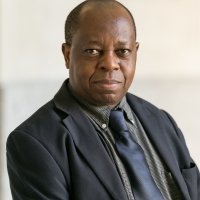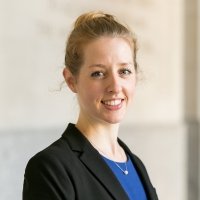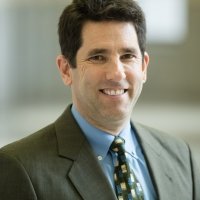WEBCAST | Peacebuilding in the Democratic Republic of the Congo: Revisiting the Tool Kit
On June 3, 2020, the Wilson Center Africa Program hosted the event “Peacebuilding in the Democratic Republic of the Congo: Revisiting the Tool Kit.” Ms. Hannah Akuiyibo, Africa Program Associate, offered welcome remarks and introduced the SVNP, under whose banner this event was being held. Mr. Michael Morrow, Africa Program Senior Diplomatic Fellow, moderated the event and was joined by Ms. Alexis Arieff, Specialist in African Affairs, Congressional Research Service; Dr. Lisa Jené, Consultant, Mercy Corps; Fr. Rigobert Minani, S.J., Head of the Research and Socio-Political Department, Centre d’Etudes pour l’Action Sociale (CEPAS), the Democratic Republic of the Congo, and current Southern Voices Network for Peacebuilding Scholar; and Ms. Aditi Gorur, Senior Fellow and Director, Protecting Civilians in Conflict, The Stimson Center. This event analyzed the efficacy of the United Nations Organization Stabilization Mission in the Democratic Republic of the Congo (MONUSCO), established in 1999 under the name MONUC, and discussed policy options for improving policy tool kits to build peace in the DRC.
Ms. Arieff spoke in her personal capacity and provided an overview of MONUSCO’s mandate and core challenges, and the U.S. government’s engagement and policy priorities in the DRC. Since the 1990s, MONUSCO has evolved into a complex mission including a civilian protection mandate as the conflict developed into an entrenched humanitarian emergency marked by abuses by state security forces and the presence of multiple armed groups. According to Arieff, key challenges of MONUSCO center on the difficulty of advancing peace in eastern DRC where conflict over citizenship rights, access to land and political patronage, criminal activity, and regional geopolitics drive a complex on-the-ground situation. MONUSCO faces challenges including a lack of capacity and political will from key troop contributing countries to fulfill parts of its mandate (such as civilian protection or disarming rebel groups), challenges of ensuring accountability for abuses by peacekeeping personnel, and the diplomatic challenge of how to denounce abuses by the central government while cooperating with state authorities. Since the 2018 election of President Tshisekedi, MONUSCO has had better cooperation with the government, but proxy wars remain a threat, and new challenges related to sub-regional tensions and possible links between the Allied Democratic Forces (ADF) rebel group and Islamic State have emerged. Speaking to U.S. policy engagement and priorities, Arieff noted U.S. involvement in conflict prevention since the early 2000s and the role the U.S. played in ending the 1998-2003 sub-regional war and threats to the city of Goma by the M23 rebel group in 2008 and 2012, and U.S. support for regular elections and associated transfers of power. Nevertheless, the U.S. has criticized UN peacekeeping effectiveness broadly, and MONUSCO specifically, and has pushed for an exit strategy. On the governance front, the U.S. has called for anti-corruption efforts and increased security sector accountability, and continues to sanction individuals in the DRC. Ongoing debates about the roots of violence in the eastern DRC, and whether it is locally or nationally driven, present different policy challenges and approaches for the U.S.
Dr. Jené addressed the current domestic political process for building peace. One of President Tshisekedi’s post-election promises was addressing the conflict in eastern DRC, and he has increased sub-regional diplomatic efforts and the army’s presence in the east. Still, he faces three main issues for securing peace, including claims against his legitimacy due to concerns surrounding the process by which he was elected, lack of funding, and lack of results. Despite the increased military presence, attacks against civilians have increased, and military action has primarily reconfigured the geography of the armed group’s control rather than dismantle the groups. According to Jené, three main dynamics drive this lack of results: 1) Army dynamics, whereby the army is disorganized and ineffective, struggles with motivation and discipline, soldiers are underpaid and lack benefits which can lead to passivity and complacency. 2) Armed group dynamics and their behavior that mimics the role of the state in exchange for tax revenue. Armed groups prey on the population’s insecurity to expropriate money, control access to mining revenue, and recruit along ethnic lines. For example, a key feature for extracting money from civilians is through roadblocks set up by the armed groups. COVID-19 could complicate these dynamics as the resulting decreasing trade and a loss of revenue from roadblocks may lead armed groups to use violence to compensate, amplify citizen fears, or expropriate aid funding. 3) Finally, the dynamics of the DRC as what Jené terms a failed state is a key challenge. Armed groups have filled the state void, undermining the state’s sovereignty. Jené gave four policy options. To the DRC Government, she encouraged continued regional diplomacy as a key measure to securing peace, and to confront the state failures through institutional reform, working to improve service delivery to citizens, undertaking decentralization that actually empowers local leaders, and addressing patronage networks, especially within the security forces. For external policymakers, she urged recognition of the DRC’s complexity before proposing solutions--citing the Dodd-Frank Act which led to an increase in conflict as artisanal miners deprived of income joined armed groups. Finally, she underscored the importance of empowering and supporting local governments and targeting policies that support leaders who have understanding of local conflict dynamics.
Father Minani discussed the successes and limitations of MONUSCO’s interventions and proposed policy options for the DRC government and external partners to support peacebuilding in the DRC. Echoing earlier remarks, he noted MONUSCO’s current, broad mandate encompassing elements of peacekeeping and peacebuilding. Among the mission’s successes, he highlighted the mission’s monitoring of the 1999 ceasefire, organizing the 2002 peace dialogues, and supporting the subsequent government of national unity. He also noted MONUSCO’s important role in the first Congolese elections, involvement in ongoing security sector reforms, and overseeing Rwandan and Ugandan troop withdrawal. Speaking to MONUSCO’s limitations, he centered his first critique on the UN’s lack of a people-centered approach in the DRC, whereby local input was not considered or included in the Goma Agreement. Furthermore, violence in eastern Congo and humanitarian crises, human rights abuses, and gender-based violence continues. Minani underscored the regional aspect of ongoing conflicts, and emphasized that this issue must be addressed in order to secure peace, particularly as armed groups continue to proliferate, sometimes with the sponsorship of neighboring countries. Minani shared two main policy options. First, the DRC government should focus on consolidating democratic governance, particularly security sector reform and electoral system reform, noting that despite three electoral cycles the country’s electoral process remains flawed. For the United Nations, he urged action on the long taboo topic of the role of neighboring countries, particularly Uganda and Rwanda, in sustaining and driving conflict in the DRC, noting that for too long this issue and the reasons behind their involvement was addressed in hearings and reports without corresponding action.
Ms. Gorur addressed the link between MONUSCO’s peacekeeping efforts and peacebuilding in the country. Gorur began by placing MONUSCO in the context of UN peacekeeping reforms emanating from the 2000 Brahimi Report. The Report reviewed global conflict relapses and identified the lack of peacebuilding as a driver of relapses. Multidimensional peacekeeping—efforts that bridge peacebuilding and peacekeeping tasks and link peacekeeping with development and human rights—emerged around the same as the first UN mission in the Congo. Currently, however, there are major conflicting views within the UN about the link between peacekeeping and peacebuilding, and the mandate of UN peacekeeping missions. Budgetary pressure (largely but not exclusively from the U.S.), and concern about excessive demand on missions diluting their effectiveness have led to calls for prioritization and sequencing to prevent mission creep that overloads mission mandates. The appropriateness of incorporating many post-Brahimi peacebuilding tasks into peacekeeping missions is being called into question. Furthermore, UN members have criticized MONUSCO’s failure to secure sustainable peace, despite many of the mission’s successes. The challenges MONUSCO faces in linking its peacekeeping and peacebuilding mandate include: 1) Host-state consent. The mission must have the host state’s consent to operate, an issue difficult for MONUSCO’s leadership to navigate given the need to also hold state forces accountable. 2) The division of labor among UN agencies. Peacebuilding work overlaps with other UN agencies, which can create turf battles and duplication of effort. 3) MONUSCO has struggled to meaningfully engage local communities. 4) Finally, budgetary pressure and pressure to exit has strained MONUSCO. In the context of the U.S. $1bn in arrears for peacekeeping payments and a potential pandemic-prompted recession, MONUSCO is facing pressure to shed tasks and limit peacebuilding efforts. Gorur presented several policy options to improve MONUSCO’s effectiveness, In the DRC a vibrant civil society presence across the country means that MONUSCO can focus on its comparative advantage in political and security areas, while leaving space for other organizations to address peacebuilding. Specifically, MONUSCO can push on political issues (such as the sensitive topics of neighboring country involvement in the DRC) greater national government legitimacy, decentralization and empowering local government, and protection of civilians. By doing so, MONUSCO can pave the way and open the political space for local organizations and other groups who will stay in-country to work on long-term peacebuilding efforts.
In the subsequent discussion, participants posed questions via Twitter and email regarding the role of regional powers in the conflict, how MONUSCO interacts with local peacebuilding initiatives and local governance, challenges related to the protection of civilians, and policy approaches to addressing the economic drivers of conflict in the DRC.
The SVNP is a continent-wide network of African policy, research and academic organizations that works with the Wilson Center’s Africa Program to bring African knowledge and perspectives to U.S., African, and international policy on peacebuilding in Africa. Established in 2011 and supported by the generous financial support of the Carnegie Corporation of New York, the project provides avenues for African researchers and practitioners to engage with, inform, and exchange analyses and perspectives with U.S., African, and international policymakers in order to develop the most appropriate, cohesive, and inclusive policy frameworks and approaches to achieving sustainable peace in Africa.
This event was livetweeted and webcast. Follow the Africa Program Twitter account @AfricaUpClose and catch up on the conversation #PeaceinDRC
Speakers

Head of the Research and Socio-Political Department, Centre d’Etudes pour l’Action Sociale (CEPAS), the Democratic Republic of the Congo
Introduction

Moderator

Senior Foreign Service Officer, U.S. Department of State
Hosted By

Africa Program
The Africa Program works to address the most critical issues facing Africa and US-Africa relations, build mutually beneficial US-Africa relations, and enhance knowledge and understanding about Africa in the United States. The Program achieves its mission through in-depth research and analyses, public discussion, working groups, and briefings that bring together policymakers, practitioners, and subject matter experts to analyze and offer practical options for tackling key challenges in Africa and in US-Africa relations. Read more
